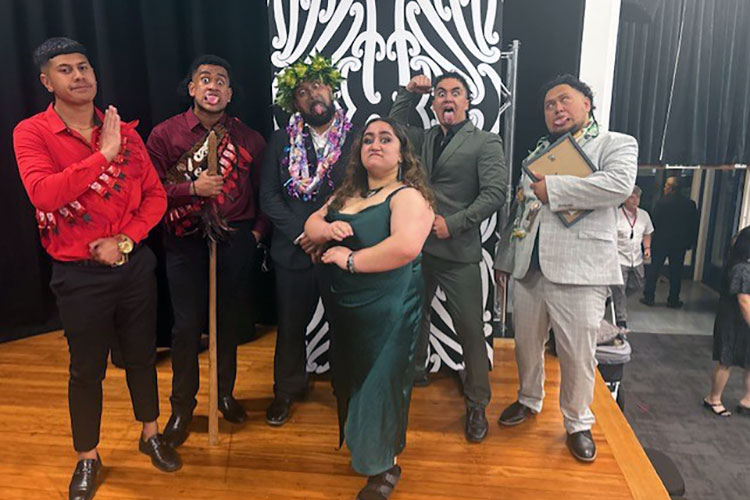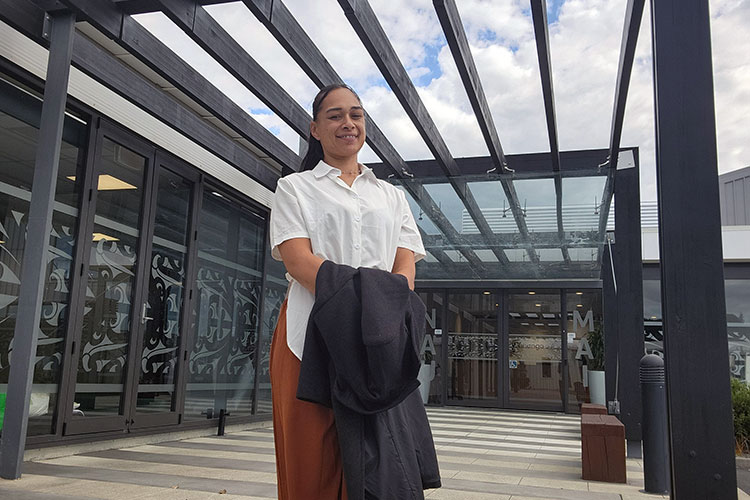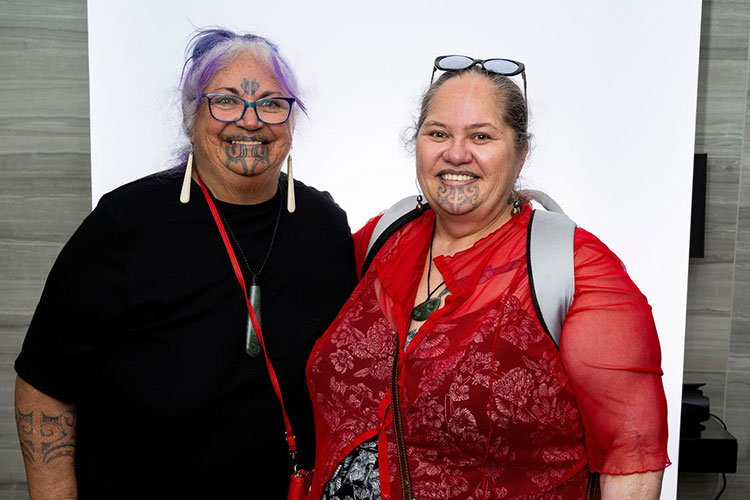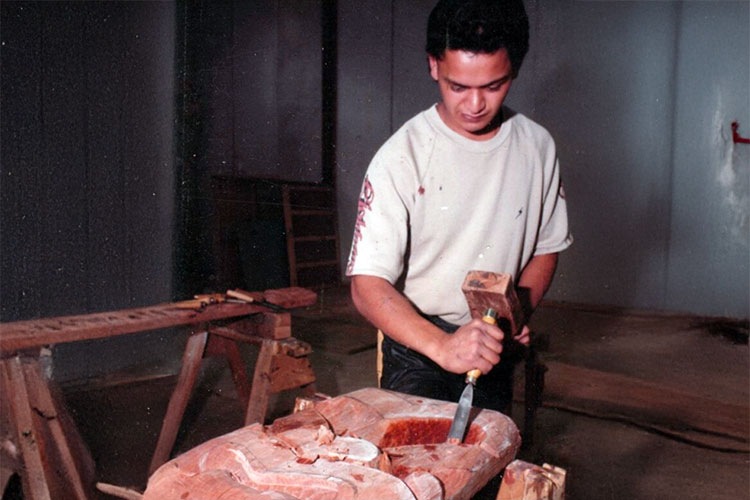Te Wānanga o Aotearoa was awarded the prestigious Mana Tangata Award at the 2025 NZ HR Excellence Awards on Thursday 27, February in Tāmaki Makaurau.
This win acknowledges the innovative approach Te Wānanga o Aotearoa took with integrating tikanga and kaupapa Māori into every stage of the kaimahi experience, creating a workplace that embraces culture and empowers its people.
Leon Takimoana, Pouwhakahaere (Deputy Chief Executive) People & Culture, with members of his team, and new CE, Evie O’Brien, dedicated the award to tauira of Te Wānanga o Aotearoa.
“They are the reason we turn up every day and do what we do; their success is our success.”
Te Wānanga o Aotearoa was also a finalist for the Organisational Change & Development Award.
“Given the level of competition and excellence demonstrated in forward-thinking HR practices across the industry, being finalists in 2 categories was an achievement in its own right.”
At the heart of this success is their people-first approach and unique workplace culture.
This approach has boosted employee engagement from 73% to 81% and reduced turnover from 8.26% to 2.89%. By prioritising personal growth and cultural inclusivity, Te Wānanga o Aotearoa has created a supportive environment that attracts and retains skilled kaimahi, positioning the organisation as a leader in fostering a culturally rich workplace. – HR NZ
Being recognised for the progress made to date gives Leon and his team motivation to continue to strive for improvements in the HR space.
Karli Te Aotonga-Tamepo, National Board Director of HRNZ, sent her acknowledgements to Te Wānanga o Aotearoa, commenting,
“Tikanga-led is your normal and you continue to shine a guiding light for others to follow.”
Leon, reflecting on the popular quote from Tā Hemi Henare, acknowledges that the road to improvement is often not easy or timely, but with challenges comes opportunities for great reward, such as this recognition.
“Kua tawhiti kē tō haerenga mai, kia kore e haere tonu. He nui rawa ō mahi, kia kore e mahi tonu | We have come too far to not go further, we have done too much to not do more.”
“Regardless of the challenges, we will continue to progress our work to align with our values, and our ways of being with how we operate to improve the experiences for our kaimahi, tauira and whānau.”
Keen to join a kaupapa Māori organisation that values culture and uplifts its kaimahi? Come work with us!




































